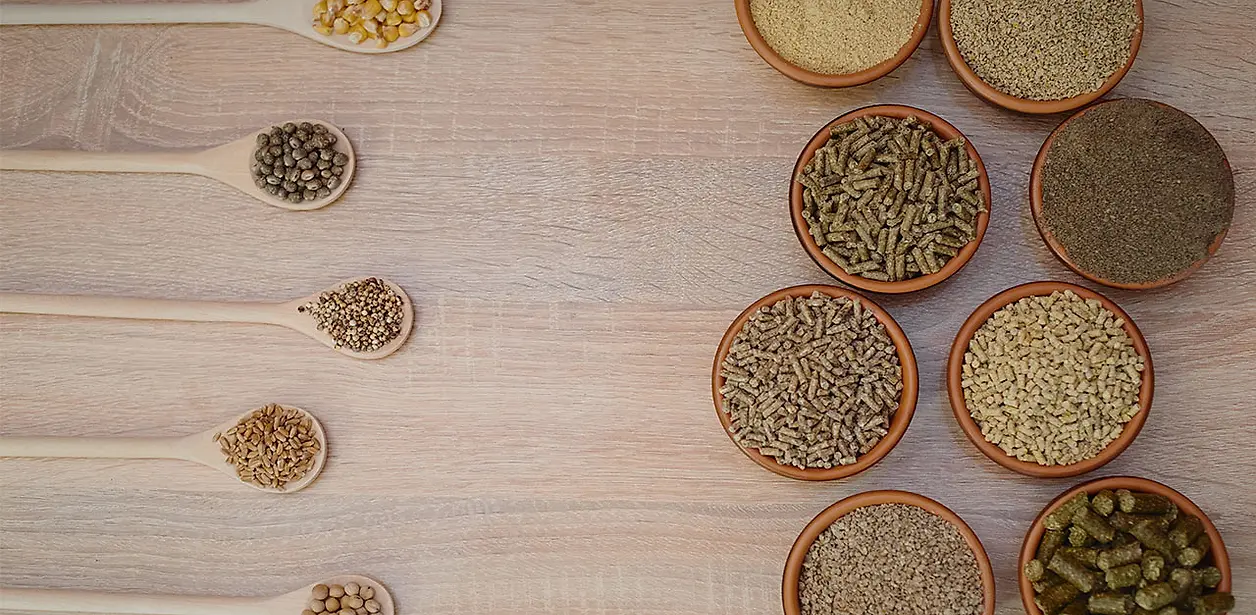ISO 133681 Energy Profiling in Camel Feed
The ISO 13368 standard provides a framework for assessing energy content and nutrient profiling in various feedstuffs, including camel feed. This service focuses on the specific application of ISO 13368 to determine the calorific value and nutrient composition of camel feed, which is crucial for ensuring optimal nutrition and performance in camels.
The process begins with sampling the camel feed according to ISO 7925-1:2014, which outlines the general principles and procedures for sampling animal feeds. Once samples are collected, they undergo preliminary examination based on ISO 6853:2012, ensuring that only representative portions are used for subsequent analysis.
The core of this service involves calorimetric determination using an adiabatic calorimeter in accordance with ISO 13368-1:2017. This method measures the total gross energy content (MJ/kg), which is vital for understanding the caloric value and potential impact on camel health. Additionally, proximate analysis techniques such as gravimetric methods are employed to determine moisture, protein, fat, ash, and fiber contents in accordance with ISO 6493:2018.
For more comprehensive nutrient profiling, we also analyze amino acid content using high-performance liquid chromatography (HPLC), following the protocol detailed in ISO 17510. This provides insights into essential and non-essential amino acids present in the feed, which are critical for supporting camel growth and performance.
The results of these analyses provide a detailed profile of the energy and nutrient composition of camel feed, allowing stakeholders to make informed decisions regarding diet formulation. Compliance with international standards like ISO ensures that the nutritional content is accurate and reliable, promoting better animal health and productivity.
Why It Matters
Accurate energy profiling and nutrient analysis in camel feed are essential for optimizing nutrition, enhancing performance, and ensuring compliance with international standards. For quality managers and compliance officers, this service ensures that feed meets the required specifications, thereby minimizing risks associated with suboptimal nutrition.
R&D engineers benefit from detailed insights into how different ingredients affect energy content and nutrient balance, which can lead to improved formulations. Procurement teams can rely on consistent data to source high-quality feedstuffs, ensuring uniformity across batches. Properly nourished camels exhibit better health outcomes, increased productivity, and reduced waste, all of which contribute positively to the industry’s sustainability efforts.
The service supports sustainable practices by providing accurate nutritional profiles that can help in developing diets that meet both animal requirements and environmental considerations. This aligns with broader goals of reducing feed waste and promoting healthier livestock, contributing to a more efficient and eco-friendly agricultural sector.
Environmental and Sustainability Contributions
- Reduced Feed Waste: By ensuring that camel diets are balanced and nutritious, this service helps minimize waste and optimize the use of feed resources.
- Sustainable Resource Management: Accurate nutrient profiling supports the selection of sustainable feed ingredients that meet both nutritional needs and environmental standards.
- Emission Reduction: Proper energy content assessment can lead to more efficient digestive processes, potentially reducing methane emissions from livestock.
Use Cases and Application Examples
In practice, this service is used by feed manufacturers to ensure their products meet the nutritional requirements specified in ISO standards. For research institutions, it provides valuable data for developing new camel feeds tailored to specific geographic regions or environmental conditions.
Agricultural cooperatives can use these results to standardize feed quality across member farms, enhancing overall herd performance and profitability. Additionally, veterinary practices may reference this data when advising clients on dietary adjustments necessary for treating or preventing certain health issues in camels.





